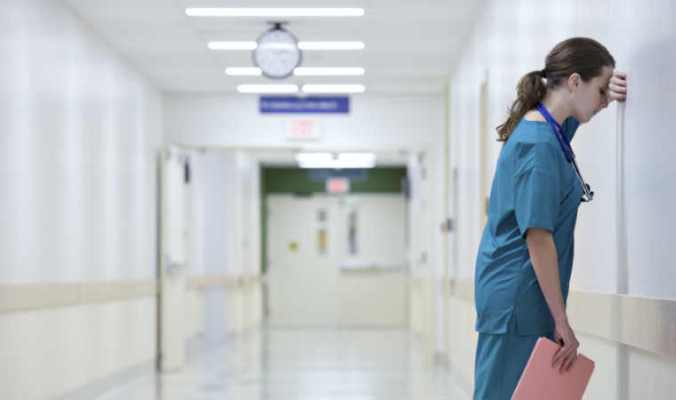With recorded rates of burnout up to 85% in medical students, nearly 50% in qualified doctors overall, and burnout rates reported to be up to 65% in some specialties our profession is in crisis. We cannot truly serve ill people if we ourselves are ill, and the doctors that are not burnt out are not necessarily truly well either.
In medicine diagnoses are based on laboratory tests. There is this notion that if there is a test for it, it must be real, and if there is nothing showing on a test then somehow it is not so real. Burnout doesn’t show up in a blood test or an x-ray, so how real is it for a doctor? Can we say that we have a condition for which there are no positive tests results? The medical profession has a tradition of dismissing and ignoring symptoms and conditions for which there are no ‘test’ results.
Doctors are not allowed to be sick – in particular they are not allowed to be sick about their work! To be sick about your work implies somehow that you are not good at your work and that you have failed. To fail at your work is a big ‘no no’ for doctors.
There is a culture in medicine that says that doctors have to be superhuman, they have to be masters of everything, know everything and be everything to everyone at all times. They have to be able to survive on no sleep, be courteous and professional at all times, know everything, give the best diagnoses, be able to cure everyone, along with the social expectation they should do it all for free as some sort of charity, simply for the ‘privilege’ of being a doctor, unlike every other profession where it is understood that you deserve to be paid for your expertise…
Doctors are supposed to be ‘the ones’ with ‘all the answers’. If you are a sick person, treating sick people, then how can you possibly have all of the answers?! Well, this is how the culture goes. To admit sickness, is to admit human frailty and acknowledge the fact that you are not the one with the answers.
In medicine, if you show signs of humanity and sensitivity, in particular signs of not coping, or finding things difficult, you are not supported: you are instead at times bullied, mocked, demeaned and labeled ‘impaired’. There is this culture that has you in fear of being bullied, of being thought to be less than capable and less than reliable by your colleagues.
Continue reading →
 When young people go to medical school they are called medical students. They know that they are to learn about medicine. Everything about medical school is about learning about medicine. In fact, every waking moment is about learning about medicine.
When young people go to medical school they are called medical students. They know that they are to learn about medicine. Everything about medical school is about learning about medicine. In fact, every waking moment is about learning about medicine. As doctors and as medical students we hear a lot about this thing called ‘work life balance’. We know that we need it, we are told that we need it but we are not really told what it is, why we need it and how to get it.
As doctors and as medical students we hear a lot about this thing called ‘work life balance’. We know that we need it, we are told that we need it but we are not really told what it is, why we need it and how to get it.
You must be logged in to post a comment.